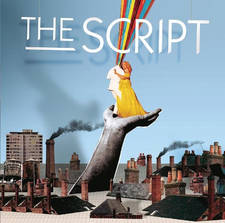Train Customer Dissatisfaction
18 February 2013, 12:11 | Updated: 18 February 2013, 13:07
A survey's found more than half of train companies have a customer satisfaction score of 50% or lower.
Overall, only 22% of train travellers feel their service is improving despite above-inflation fare rises last month, according to the Which? survey.
Bottom in the 19-company satisfaction table was First Capital Connect, with only 40% of its passengers satisfied with its service.
First Capital Connect run services on the Bedford to Brighton Thameslink line through St Albans, and the Great Northern Line through Sandy, Biggleswade, Stevenage and Hatfield.
The next least-satisfied passengers were those travelling on Greater Anglia trains, with the company scoring only 42%.
The criticism came after it emerged that train company bosses are enjoying six-figure salaries, just as rail passengers are enduring above-inflation fare rises.
The East Coast line, where services are run in the public sector, has as many as eight directors on annual salaries of above #100,000, one earning between £161,000 and £180,000.
The highest paid director at CrossCountry earns £222,000, including pension contributions, as of 2011, while Sir David Higgins, the chief executive of rail infrastructure company Network Rail, was on an annual basic salary of £560,000 as of March 31 2012.
Other companies where satisfaction levels were low included Southeastern (43% satisfied), First Great Western (43%), Northern (44%) and London Midland (45%).
Also below 50% were South West Trains (47%) Southern (48%) and Arriva Trains Wales (48%). The East Midlands Trains' figure was 50%, leaving 10 companies at 50% or worse and nine at better than 50%.
Top of the satisfaction table, compiled from responses from 7,500 regular train users, was West Coast main line operator Virgin Trains with a score of 67%.
London Overground was second with 65%, while the London to Tilbury and Southend company c2c and Merseyrail both scored 64%.
On London Overground, where new trains have been introduced in recent months, 60% of users said they felt the service had improved in the past two years.
But Which? said at the other end of the scale, a quarter of passengers reckoned they were now getting a worse service on London Midland where staff shortages have caused problems in recent months.
Which? said: "One First Capital Connect customer told us: 'The price has increased and the trains get more and more crowded. I never see any improvements for the extra money I am paying'.
"And a Southeastern passenger said: 'The prices are terrible, the service is bad and trains are often delayed, cancelled and dirty'.''
The survey also showed that 40% of train travellers are likely to reduce the number of journeys they make as a result of the recent price increases which have season tickets rise by an average of 4.2%.
But a third of commuters said they did not have an alternative way of getting to work and would just have to pay more.
In a separate investigation Which? found train ticket machines also offered travellers poor service. In a snapshot investigation, looking at 11 London mainline station ticket machines, Which? found certain tickets not available or unclear information that could either prevent people getting the cheapest ticket or risk being fined for travelling with an invalid ticket.
Which? executive director Richard Lloyd said: ``With 1.5 billion train journeys made every year and eight of the 17 UK rail franchises up for grabs in the next two years, customer service should be top of the agenda for every train operating company.
"It is good to see some are performing well on service, but customers clearly feel others need to do better.''
He went on: "Passengers tell us they are fed up with trains that are delayed, overcrowded and dirty. This is especially disappointing as many commuters can't shop around or change the company they travel with.
"Train companies need to play fair with their customers, especially when they are being asked to pay more for their journeys.''
Responding to the Which? survey, a spokesman for the Association of Train Operating Companies said: "The independent watchdog Passenger Focus surveys up to eight times as many people a year and last month reported 85% of passengers are satisfied with their service - a record high.''
Shadow transport secretary Maria Eagle said: "While taxpayers continue to fund the rail industry to the tune of #3.5 billion every year, rail companies must do better and the Government needs to hold them to account on behalf of passengers and taxpayers.
"This Government are also approving the closure of many station ticket offices to cut costs, but as this survey shows where people have to rely on machines, they often can't get the best ticket.
"David Cameron broke his promise to commuters to cap fare rises at 1% above inflation, with some passengers facing fare rises of up to 9.2%
"The Government should come clean with commuters that they are allowing the closure of ticket offices and that it was their decision to cave in to pressure from the private train companies to let them hike ticket prices beyond the so-called cap.''
Bob Crow, general secretary of the RMT transport union, said: "It is about time these basket-case private train companies like First Capital Connect were booted off Britain's railways for good and their franchises returned to public ownership.
"This current tolerance of these private rail spivs by the Government is reward for total and abject failure on an epic scale.''
These were the customer satisfaction scores for each train company, according to the Which? survey:
COMPANY SCORE
Virgin Trains 67%
c2c 64%
Merseyrail 64%
Chiltern Railways 62%
East Coast 58%
First Transpennine Express 54%
ScotRail 53%
CrossCountry 51%
East Midlands Trains 50%
Arriva Trains Wales 48%
Southern 48%
South West Trains 47%
London Midland 45%
Northern 44%
First Great Western 43%
South Eastern 43%
Greater Anglia 42%
First Capital Connect 40%


